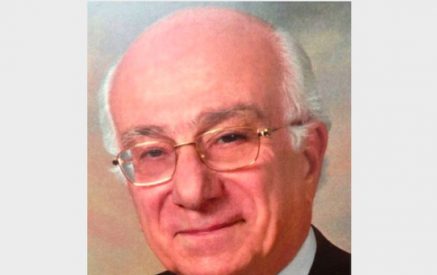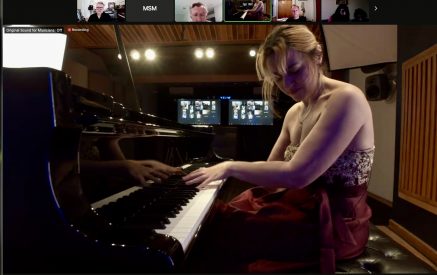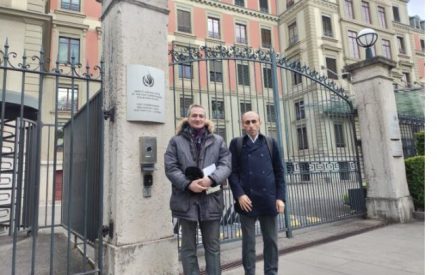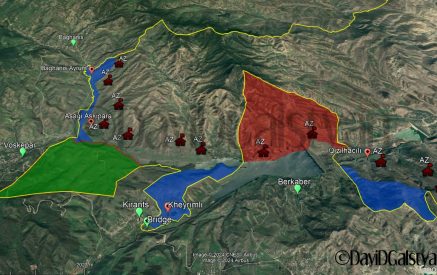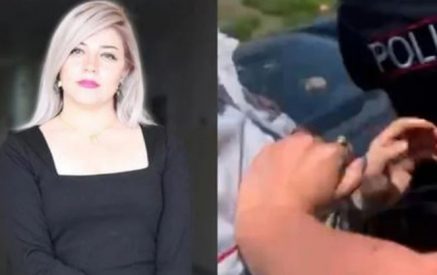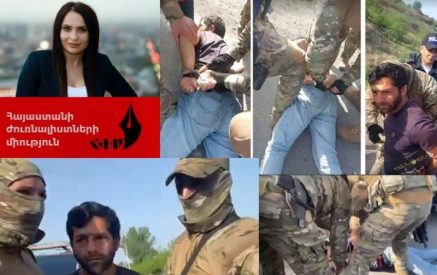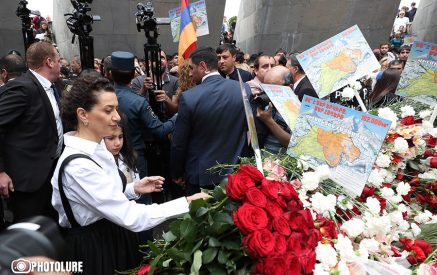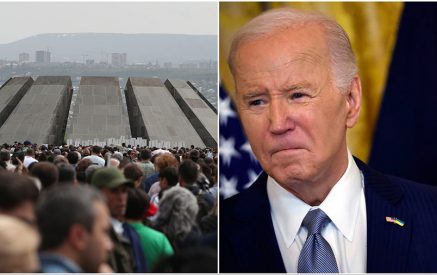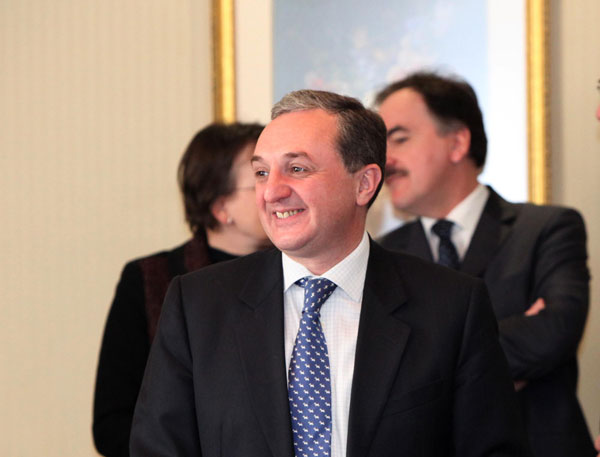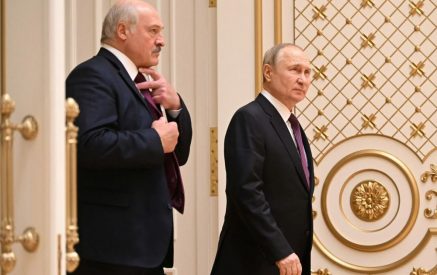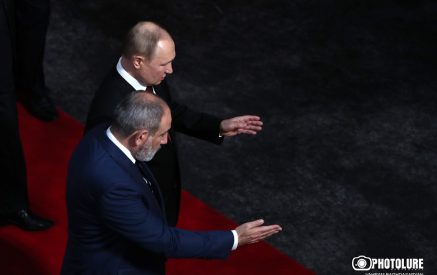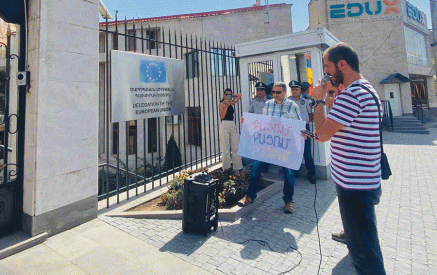According to Zohrab Mnatsakanyan, a Deputy Minister of Foreign Affairs of the Republic of Armenia, “We haven’t put the issue of Armenia’s membership in the EU on the agenda.”
* Talking about the results of the negotiations on the EU Association Agreement at the joint press conference with you, Gunnar Wiegand, the European External Action Service Director and Chief Negotiator for Eastern Neighborhood, Russia and Western Balkans who was in Yerevan on March 20, stated that besides Armenia, there were negotiations also with Moldova and Georgia, which were almost at the same stage, and it would be possible to sign agreements with the three countries by the end of the year. Mr. Mnatsakanyan, how will you explain our success in the process of Armenia’s integration in the EU, and may Armenia state about its membership in the EU one day?
* One thing is clear; we are building this country in accordance with general European system of values. Perhaps it is not palpable and visible, but it is the foundation for developing the relations. We adhere to the same system of values; I am not talking about the problems, I am talking about perceptions, longings, the vision, the logic of building the country, and that vision stems from the foundations that have been built over centuries – culture, philosophy, values, religion, and history. We have our agenda, partners who work in accordance with the logic of that agenda, and this agenda has its logic of development. We haven’t put the issue of Armenia’s membership in the EU on the agenda. The Armenia-EU Association Agreement is deeper in content, more elaborated, more comprehensive, than, for example, the similar agreements with the Eastern European countries in the 1990s. Its goal is political association and economic integration. Armenia has its foreign political agenda; we have shown so far that we are very reliable and predictable partner in the region. We know what we need. We have never talked about membership in the EU; that issue is not on our agenda. The EU, in its turn, is a live body and stands out for its ability to adapt to new realities. Besides, we take into account our interests, our geopolitical location and enhance our reliability as a partner. We don’t oppose developing our relations with the EU to any other direction.
* Mr. Mnatsakanyan, Gunnar Wiegand also stated in Yerevan that there were negotiations also with Azerbaijan, but there was less progress there, so it is clear that Armenia’s and Georgia’s relations with the EU are at a higher level than those of Azerbaijan. What priorities does the EU have in its relations with Azerbaijan?
Read also
* As for Azerbaijan’s relations with the EU, Azerbaijan has its logic. Azerbaijan is not a member of the WTO, which is a precondition for starting negotiations on the DCFTA. Azerbaijan has other goals; they attach importance to energy cooperation, and if they prefer other priorities, including to the detriment of general values, then it is the business of the EU and Azerbaijan.
* The Armenia-EU Readmission Agreement was signed in Brussels on April 19. Eduard Nalbandyan, the acting Minister of Foreign Affairs of the Republic of Armenia, stressed that he expected that the agreement on visa facilitation signed in December and the agreement on readmission would be quickly ratified by the EU, which will make it possible to start negotiations on establishing a visa-free regime. At what stage are these agreements, Mr. Mnatsakanyan?
* Simplifying and facilitating people’s movement to the EU and mutual contacts is one of our main goals. The Readmission Agreement and the Visa Facilitation Agreement between Armenia and the EU are a single process, but two separate documents. In the case of these agreements, there won’t be a procedure of ratification by more than twenty countries; they will only be confirmed by the European Parliament and ratified by our parliament. We expect that they will enter into force during the current year. After the Visa Facilitation Agreement enters into force, there will be simplified procedures for citizens of the Republic of Armenia to get Schengen visas. The agreement provides for simplified entrance for a set of groups of Armenian citizens, in particular scientists, students, journalists, sportsmen and artists, close relatives of people legally residing in EU countries, members of official delegations and others. On-demand issue of one-, two and five-year multiple entry visas for Armenian citizens of the mentioned categories are provided for. It is intended to reduce the price of Schengen entry visa, €35, and to make it free for the above-mentioned categories, as well as children and retirees. Shortly after implementation of the Armenia-EU Visa Facilitation Agreement, we intend to start discussions with the EU on freeing Armenian citizens from the requirement to get a visa to enter EU countries of Schengen Area.
* During a meeting with Štefan Füle, the European Commissioner for Enlargement and European Neighborhood Policy, the sides discussed also the preparatory work of the donors’ conference, which is meant to support reforms in the Republic of Armenia. Mr. Mnatsakanyan, does the EU undertake an obligation to show financial support for implementation of reforms, is work on this being done already?
* Certainly, the intended reforms are costly. The logic of reforms is reflected in the action plan of our government, in Armenia’s development strategy. The association process will be reflected in our action plan. We can also accelerate the processes through support. This is the logic of our dialogue with our EU partners, and this is about additional financial support. There are different financial instruments, using which the EU supports our reforms. We use the concept of donors’ conference in the context of supporting development and reforms, and we intend to cooperate with a very wide circle. In this regard, we are engaged in active work with the European Commission, the World Bank, the Asian Development Bank and others. We don’t need to just convene a conference to say that we have held it; we need results. What ideology should we adopt, how should we hold it, what approaches should we take, what document will we be guided by, how will we attract potential participants, are those only states and organizations or we can involve the private sector in a broad sense too? This is not a one-move combination, and it is not just about holding a conference and getting money, it is also huge preparatory work before holding it. Certainly, in a way, this is a novelty for us too, but we initiated it, and we have to prepare for that conference. However, it also is part of our political agenda, and Herman Van Rompuy, the President of the European Council, José Manuel Barroso, the President of the European Commission, and Štefan Füle, an EU Commissioner, talked about that.
EMMA GABRIELYAN
Photo by PHOTOLUR
Aravot Daily

